
A water heater flush costs $160 on average but can vary based on the unit size, type, labor, location, and more. Keep reading to learn how much you could pay.
Safe hot showers ahead


A 10-gauge wire is the standard water heater wire size for most homes.
Homes with high-demand water usage would require an 8-gauge wire.
The National Electrical Code dictates what gauge wire your home's water heater needs.
Hiring a local electrician is the safest way to properly install a water heater wire.
If you're installing a new water heater or upgrading your existing wiring, you need to choose the right water heater wire size. Finding the correct size ensures safety and compliance with electrical codes. Plus, it provides smooth operation and longevity for your system, making it more efficient. Having the wrong gauge can lead to overheating, breaker trips, and fire hazards.
A 10-gauge wire is the standard choice for most residential water heaters. The size can safely handle the 30-amp, 240V circuit required for 4,500W to 5,500W units. A 10-gauge wire size efficiently delivers power while preventing overheating or voltage drops. Since most household water heaters fall within this wattage range, electricians and building codes specify 10-gauge wiring as the go-to option, but the end choice may vary depending on the wattage.
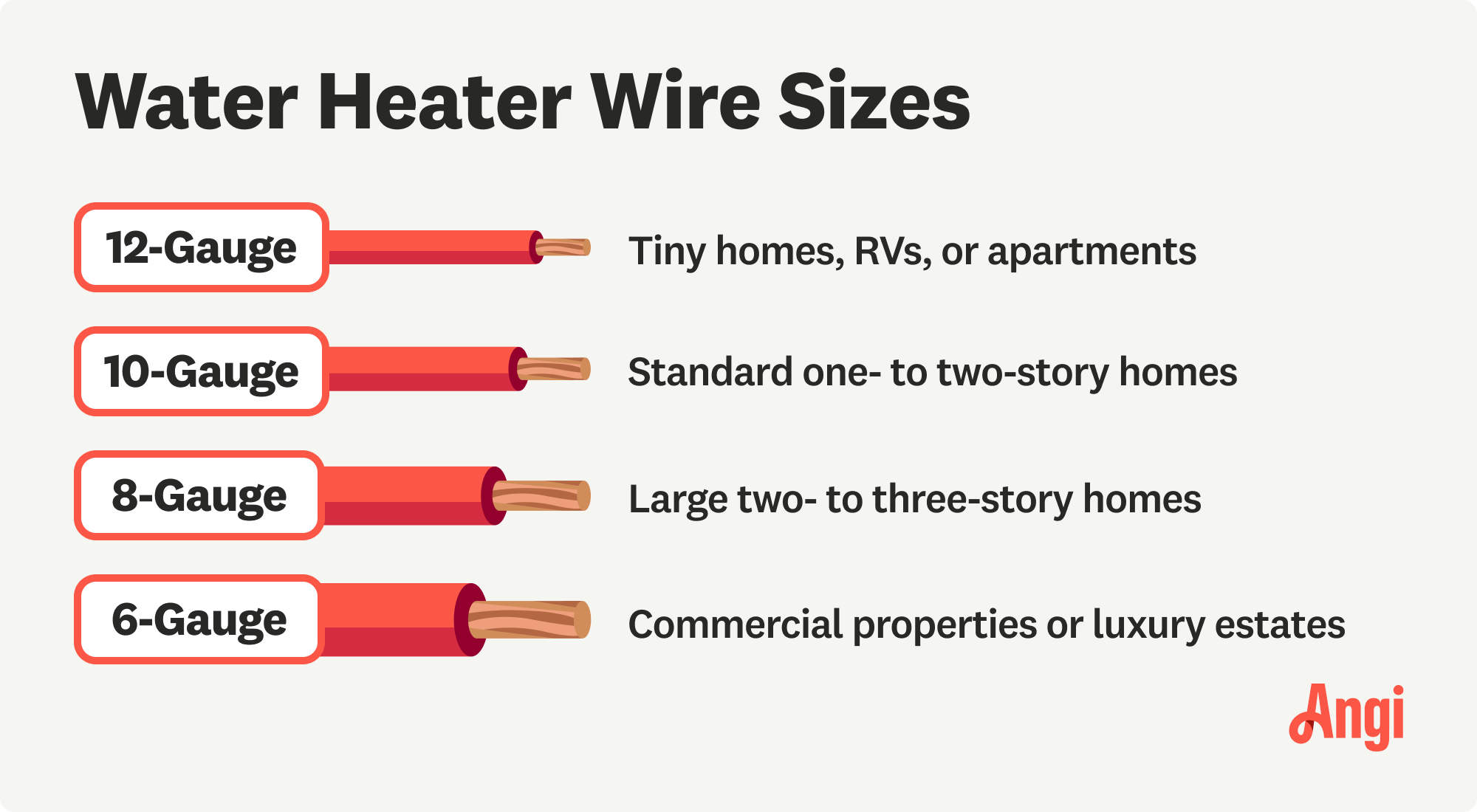
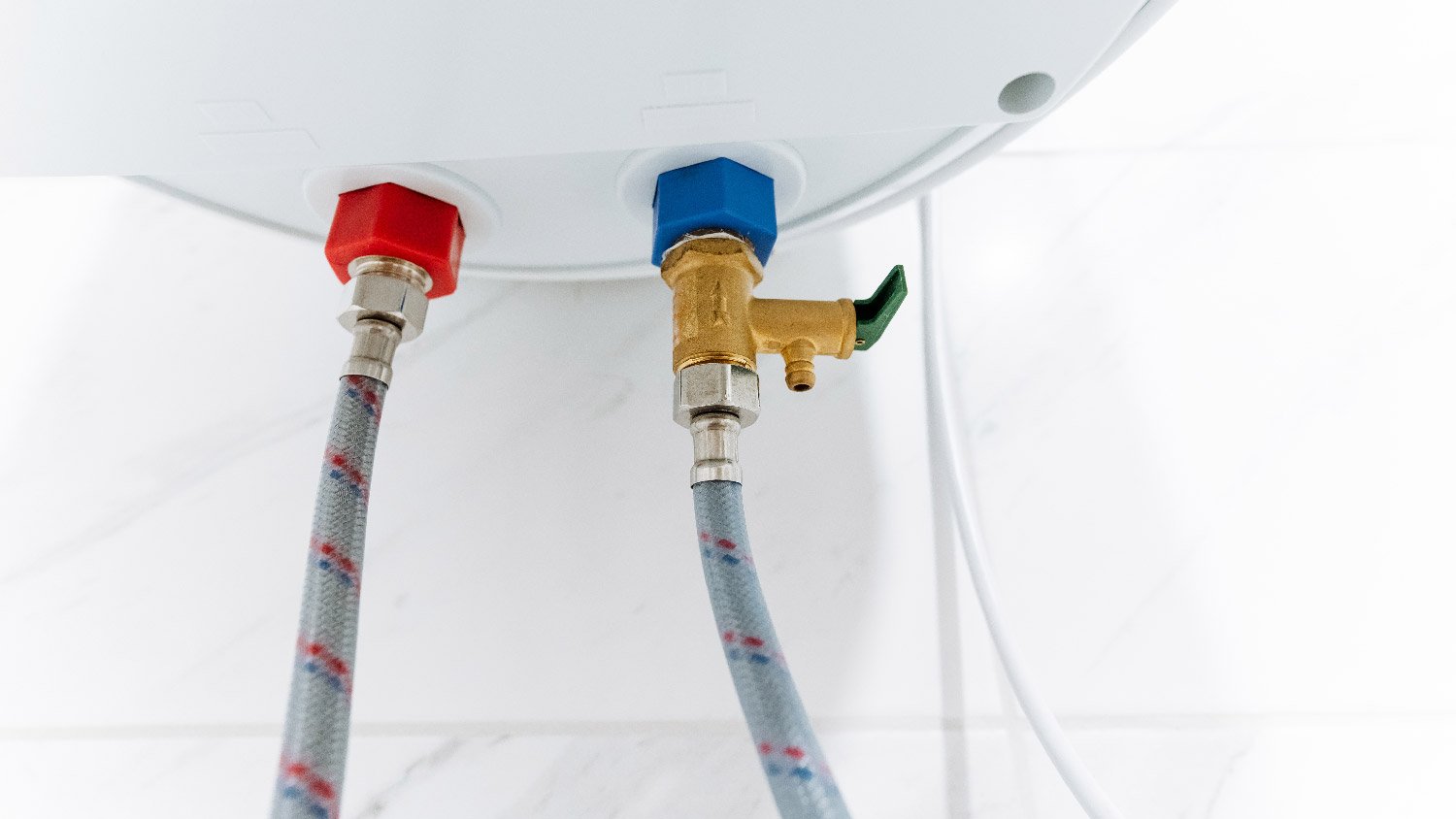
| Wire | Amp | Unit Wattage |
|---|---|---|
| 12-Gauge | 25 | 1,500–2,500 |
| 10-Gauge | 30 | 4,500–5,500 |
| 8-Gauge | 40–50 | Up to 9,600 |
| 6-Gauge | 50+ | Up to 11,500 |
While a 12-gauge wire is too small for standard residential water heaters, it's suitable for low-wattage models running on 120V circuits. These are compact, under-sink, or small tankless water heaters with a power rating of around 1,500W to 2,500W. This wire size is best suited for small apartments, offices, RVs, or tiny homes where a full-size water heater isn’t necessary.
10-gauge wire is the most common wire size for residential electric water heaters operating on 30-amp, 240V circuits with power ratings between 4,500W and 5,500W. It provides the necessary capacity for efficient heating without overheating the wire. A 10-gauge wire is best suited for single-family homes, townhouses, and standard residential properties, where a conventional 40- to 50-gallon tank water heater is sufficient.
For homes with high hot water demand, an 8-gauge wire is required for water heaters drawing 40 to 50 amps. These units may be larger-capacity tank heaters (80+ gallons) or high-powered tankless systems that require more current. This wire size is ideal for multi-bathroom homes, large families, or homes with Whirlpool tubs, where a standard 10-gauge wire won’t do the trick.
A 6-gauge wire is used for heavy-duty water heaters that draw over 50 amps. Suitable in commercial buildings, multi-unit properties, or industrial settings, this wire size handles large-capacity storage heaters, high-output tankless units, or specialized hot water systems used in hotels, laundromats, or spas. Residential homes rarely require this wire size, but it may be necessary for luxury estates with extremely high hot water usage.
Find the correct wire size for your water heater by checking the unit's wattage and voltage rating, which you should see on the nameplate. Then you need to answer: how many amps does a water heater use? Determine amperage draw with this formula: watts ÷ volts = amps. Choose a wire gauge equipped to handle at least 125% of the heater's rated amperage. This percentage is required by the National Electrical Code (NEC) to meet water heater installation code requirements.
For example, a 4,500W, 240V water heater draws 18.75 amps. Applying the 125% rule, the result is 23.44 amps, which requires a 10-gauge wire on a 30-amp breaker.
While you can determine the size of your water heater wire on your own, it's best to consult a local water heater installer for compliance and safety.
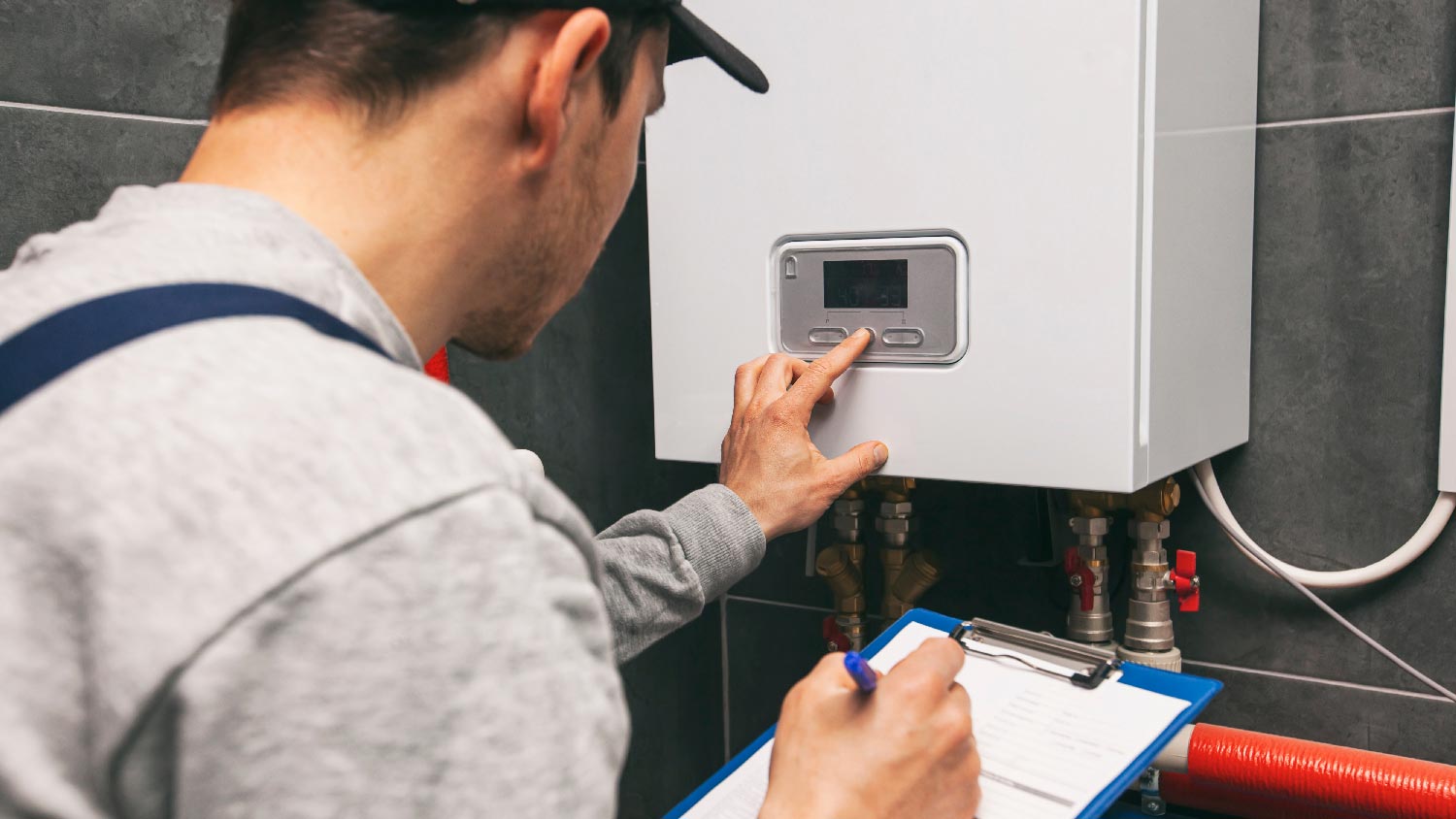
While the unit's wattage, voltage, and amperage load largely dictate your wire size, there are a few other factors to consider.
Breaker size: The breaker size for your water heater needs to match the amperage requirements and be compatible with the wire size.
Wire type: THHN or THWN in conduit is used in wet/damp areas, while NM-B is best for indoor dry locations.
Type of property: Larger homes, commercial buildings, or homes with high hot water demand may need thicker wire.
Local electrical codes: Depending on your location, some areas may have additional requirements beyond NEC standards.
Panel distance: Longer wire runs require thicker wire to prevent voltage drop.
Before you determine your water heater wire size, you'll need to know what size water heater you need. Consider your household size, hot water usage, and peak demand. A typical 30- to 40-gallon heater suits one to two people, while 40- to 50-gallon models work for three to four people. Larger households with five or more people may need a 50- to 80-gallon tank or a high-capacity tankless system.
If your water heater has the wrong wire size, you’ll need to replace it with the correct gauge. Using a wire that’s too thin can cause overheating, breaker trips, and potential fire hazards, while a wire that’s too thick is unnecessary but not dangerous. Your best course of action is to hire a licensed electrician to install the correct gauge wire to avoid potential safety risks.
If you have the incorrect size water heater, it’s time for an upgrade—especially if your current unit isn't equipped to handle high hot water usage. The average water heater replacement cost ranges between $890 and $1,810.
From average costs to expert advice, get all the answers you need to get your job done.

A water heater flush costs $160 on average but can vary based on the unit size, type, labor, location, and more. Keep reading to learn how much you could pay.
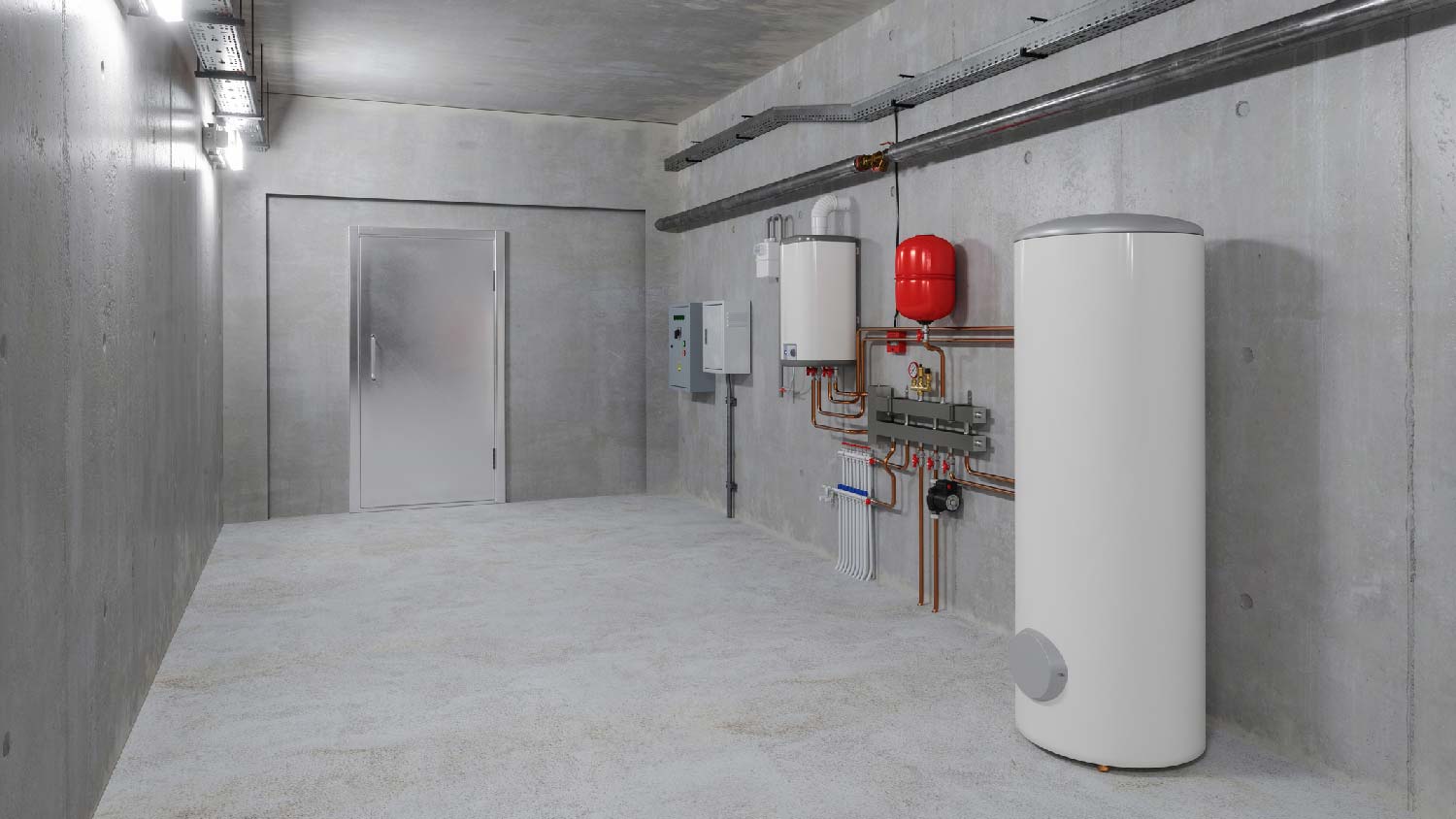
Learn all the factors that influence the cost to install a heat pump water heater at your home.

Wondering how much a water heater expansion tank costs? Use this cost guide to get an accurate estimate and learn how to choose the right one for your home.

What are some signs you need a new water heater? Get a look at the common signs your water heater needs to be replaced because damage is beyond repair.

Trying to decide between a heat pump and a tankless water heater? Take a look at the pros, cons, and costs of these energy-efficient water heaters.
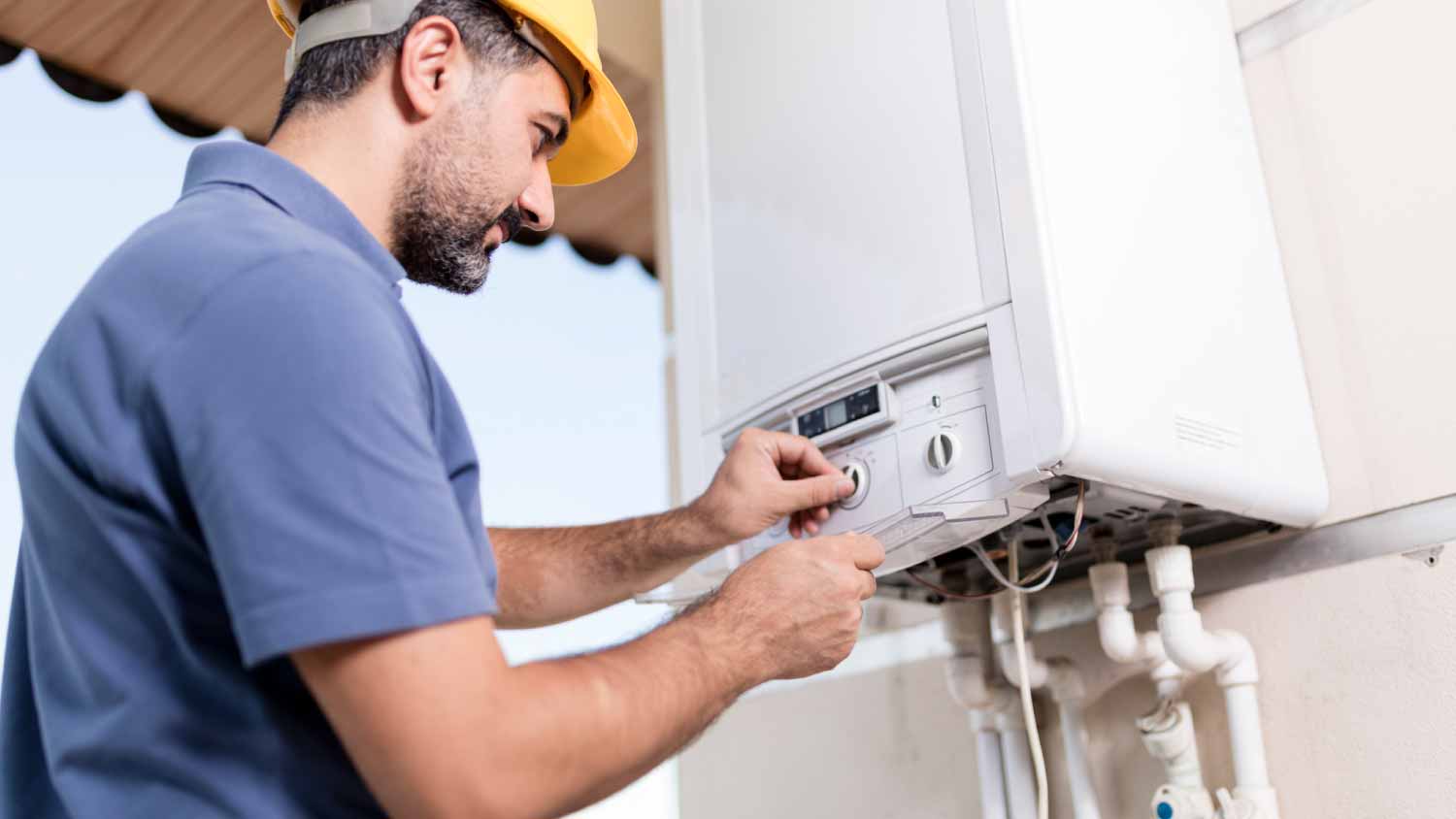
A lack of hot water might not mean an expensive repair. Use this guide to learn how to replace a thermocouple on a water heater as a potential fix.